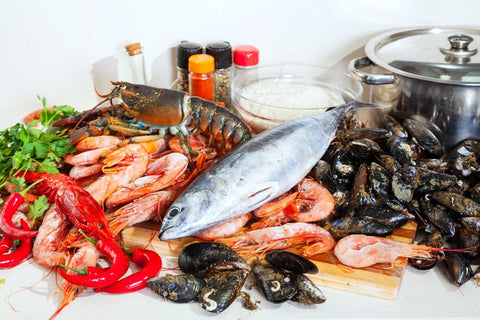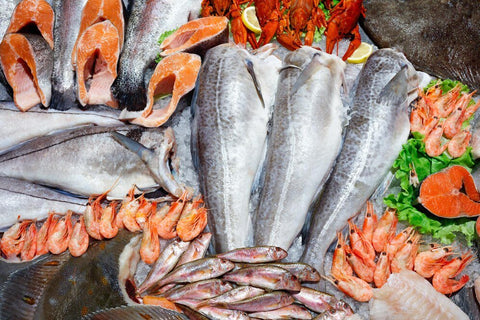Seafood, a delicacy cherished worldwide, finds its way to consumers through various channels. Two primary avenues, wholesale and retail, serve as major distribution routes, each with its own set of advantages and disadvantages. Let's delve into the realm of retail and wholesale seafood to understand the complexities and differences.
Wholesale Seafood
Pros:
- Cost Efficiency: Buying seafood in bulk from wholesalers often results in lower per-unit costs. Restaurants, supermarkets, and large-scale buyers benefit from wholesale prices, allowing them to maintain competitive pricing for consumers.
- Variety and Quantity: Wholesalers offer a vast array of seafood options in large quantities. They source directly from fisheries and aquaculture farms, providing access to a diverse range of fresh catches.
- Convenience for Businesses: For restaurants and businesses, wholesale purchases streamline operations. They can acquire substantial quantities of seafood at once, ensuring consistent supply to meet customer demands.
Cons:
- Quality Control Challenges: Despite the variety, maintaining consistent quality can be challenging. Seafood passes through multiple hands before reaching end consumers, increasing the risk of mishandling or improper storage, potentially impacting freshness.
- Limited Accessibility for Individuals: Wholesale markets primarily cater to businesses, leaving individual consumers with limited access.
Retail Seafood
Pros:
- Quality Assurance: Retailers, especially specialized fishmongers or seafood markets, prioritize maintaining high-quality standards. They often source directly from trusted suppliers, ensuring fresher and well-handled products.
- Accessibility for Individuals: Retail seafood markets cater to individual consumers, offering smaller portions and diverse options.
- Customer Interaction and Service: Personalized service and advice on seafood selection and cooking methods are common in retail settings. This interaction enhances the overall buying experience.
Cons:
- Higher Prices: Retail prices for seafood tend to be higher due to smaller purchase quantities and additional handling costs incurred by the retailer.
- Limited Variety: Compared to wholesalers, retail markets might have a more limited range of seafood options available at any given time.
Making the Choice
When considering whether to opt for wholesale or retail seafood, several factors come into play:
- Quantity Needed: For bulk purchases, especially by businesses, wholesale markets offer cost-effective solutions. Retail markets suit individual buyers looking for smaller quantities.
- Importance of Quality: If guaranteed freshness and quality are paramount, retail seafood markets might be the better choice due to their focus on individual customers.
- Budget Considerations: Wholesale markets offer cost advantages for bulk buyers, while retail markets provide convenience for smaller purchases despite slightly higher prices.
Both wholesale and retail seafood avenues have their merits and limitations. The choice ultimately depends on individual preferences, requirements, and the specific needs of businesses or households.
Conclusion
Absolutely! When it comes to choosing between wholesale and retail seafood, it's all about what fits your needs and preferences best. Consider what matters most to you—whether it's the quantity and cost benefits of wholesale or the quality and convenience of retail.
And if you're leaning towards wholesale seafood, check out the fantastic options available at Seafood Direct. They have a great selection that might just be exactly what you're looking for. Happy seafood hunting!




Comments (0)
There are no comments for this article. Be the first one to leave a message!